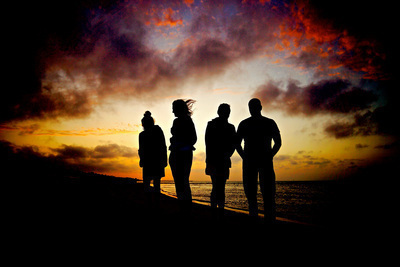The Pittsburgh Wine Festival, now in its seventh year, has been hailed as one of the top 10 wine festivals in the United States.
This year, representatives from more than 150 wineries attended the four-hour tasting on April 30 at Heinz Field — the culminating event that involved the pouring for 500 wines. Planners expected the economic downturn to take a bite out of attendance, and indeed 2,000 people attended compared with 2,600 in 2008. But even if the economy improves in 2010, changes made to this year’s festival may reduce people’s enthusiasm for the event. Organizers alienated the wine festival’s most important supporters — the liquor-license holders who use the festival to find new wines to offer in their restaurants and bars. They also appeared to cut back on the food offerings and entertainment at this very expensive event and provided little guidance on wine-tasting procedures. On the first complaint, restaurant and bar representatives were limited to one hour with the vendors before the festival began, while in previous years they could stay for the entire festival. Organizers asked them to leave at 4 p.m., and if they wanted to return at 5 p.m., when the public wine tasting began, they had to purchase a ticket. Instead, many of them boycotted the event entirely. Last year 17 restaurants held wine dinners in conjunction with the festival. This year, only five did. One restaurant missing from that list was Mio Kitchen and Wine Bar. Although last year’s dinner sold out weeks in advance, this year chef/owner Matt Porco realized a few weeks before the festival that no one from the planning staff had even called him. The absence of many restaurant and bar reps from the festival was felt in other ways. For many restaurant diners, one of the exciting aspects of the festival is socializing with bar and restaurant owners, discussing wine and getting their suggestions on what to sample. These reps are not freeloaders drinking the expensive wine and relaxing. They are working to cultivate relationships with wineries, discovering new wines to introduce to their customers and serving as unofficial ambassadors for the wine festival. Because they use the wine festival to improve their own wine offerings, a larger portion of the public benefits.
Tickets to the wine festival are expensive. The lowest single-ticket price –$125 — grants entry to the tasting extravaganza only from 7 to 9 p.m. For $250, one gets in at 5 p.m. and has the privilege of greater exclusivity, because only 500 tickets are sold to the earlier VIP tasting. During the later grand tasting, lines are long and many have difficulty talking with winery representatives.
Lets Drink To A Better Pittsburgh Wine Festival 2009: Pittsburgh Wine
Lets drink to a better Pittsburgh Wine Festival

Event Location:
